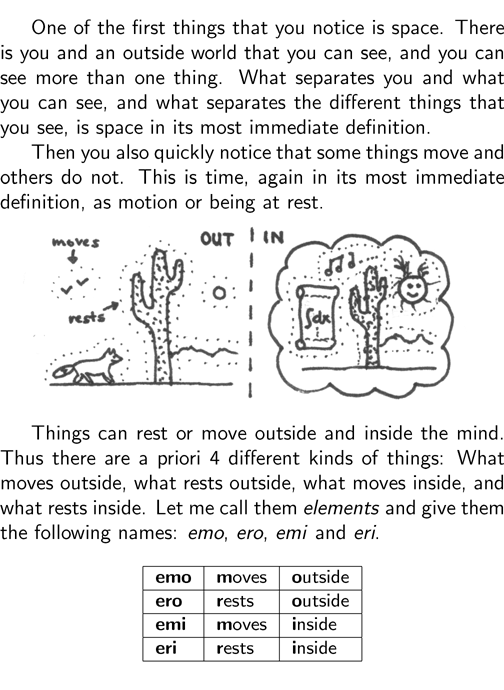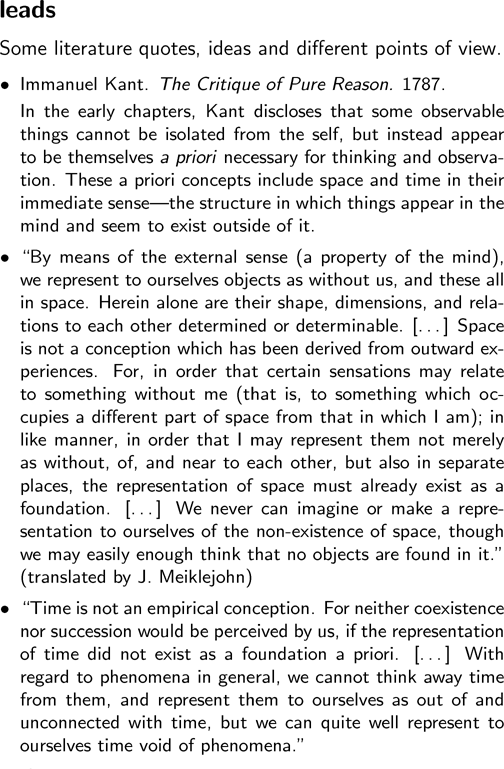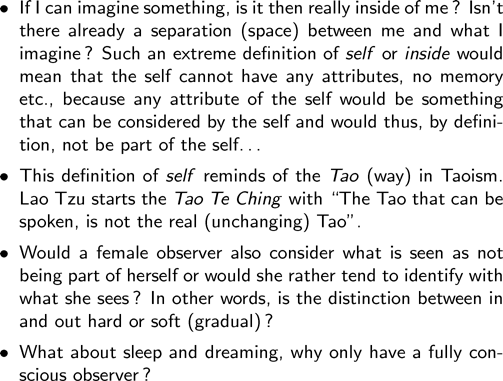











|
|

|
        |
|
|
space and timeImagine that you have just now started to look at the world. [image] One of the first things that you notice is space. There is you and an outside world that you can see, and you can see more than one thing. What separates you and what you can see, and what separates the different things that you see, is space in its most immediate definition. Then you also quickly notice that some things move and others do not. This is time, again in its most immediate definition, as motion or being at rest. [image] Things can rest or move outside and inside the mind. Thus there are a priori 4 different kinds of things: What moves outside, what rests outside, what moves inside, and what rests inside. Let me call them elements and give them the following names: emo, ero, emi and eri.
leads
Some literature quotes, ideas and different points of view.
|
||||||||||||